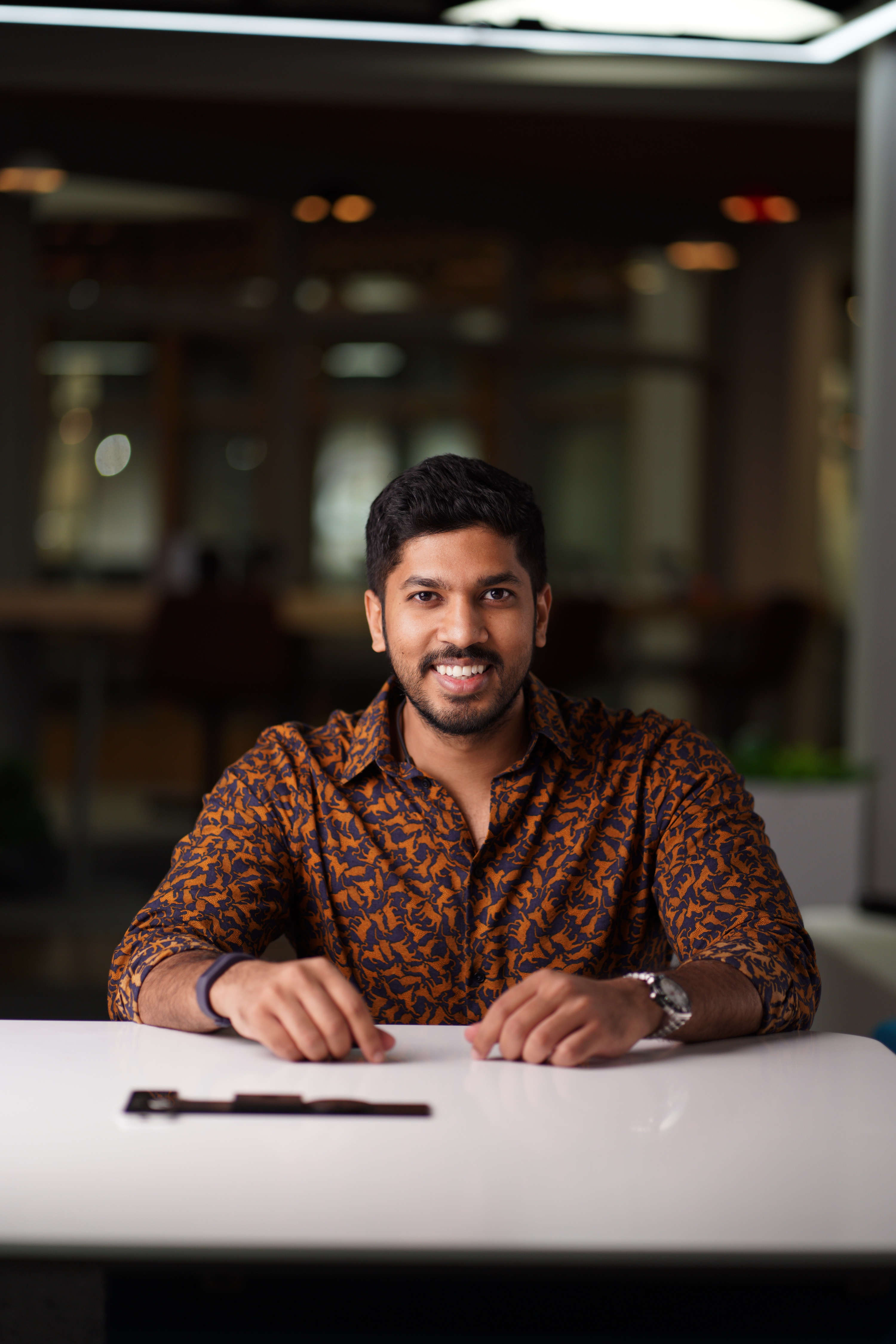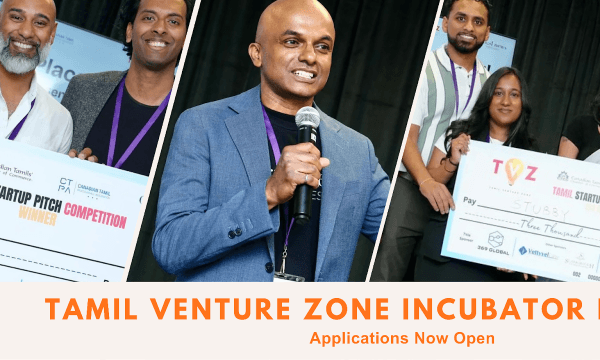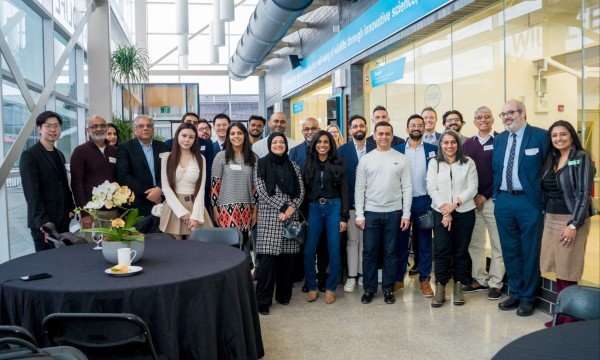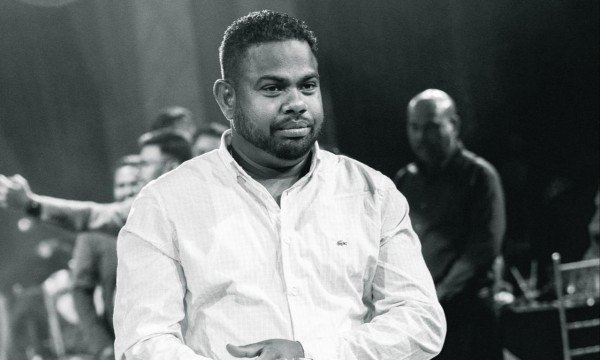
Following the success of DrinkEntrepreneurs Malaysia, a fire was lit under Mahendranathan to develop some of his longstanding ideas into other start-ups. Mahendranathan recently spoke with me to discuss his work in the start-up world, how he manages work-life balance, and what he thinks will be the impact of COVID-19 to start-ups in Malaysia and beyond.
1. Tell us a bit about where you were born, raised and went to school.
I was born in a suburb an hour from Kuala Lumpur. My family was actually living in Borneo because of my dad’s job at the time but they came back to KL just for my birth. Growing up I had a traditional conservative upbringing. My siblings and I focused on academics in order to get highly coveted scholarships. I ended up going to Nilai University's twinning program with Oxford Brookes University where I studied accounting and finance. This wasn’t really my goal as I liked physics but that’s where I ended up. After completing my degree I went to PwC, but even before I started my career I always knew I wanted to be an entrepreneur.
2. Tell us about how you ended up where you are today in your career.
After PwC I decided I wanted to move into consulting and went to KPMG for two years for strategy and operations. After that I came across a role with an Asian football operation and ended up leading their corporate governance division.
While I was at KPMG I actually started my first company, DrinkEntrepreneurs. This became a part-time project for me. My partner was at EY and also had an interest in entrepreneurship. We went to a global youth summit and met an individual who started a DrinkEntrepreneurs branch in Paris. I am pleased to report that the KL branch is now the biggest in the world — having conducted over 100 events. We just had a fifth-year anniversary in November.
After my stint in Asian football, I was doing talks at schools on the weekends helping students build their CVs and prepare for scholarship interviews on an ad hoc basis. I did this for about six to eight months and ended up quitting my job to work on this full-time and start a company called CViator. This was a brick and mortar business where we targeted high school students, asked them what their goals were and helped them with resume building. In terms of revenue we made half a million in two years which is a pretty high margin. However, we faced the early challenge of scaling the business and collecting payments from schools.
After this experience I was approached by a friend to work on a project called plantOS — a computer solution for indoor farmers that tried to tackle food security. My friend came up with the idea. He's the head of a tech department and was working on a side project but had no business sense at the time. I came in to help him with a business model as a part-time gig while I worked as a consultant for MaGIC, a global innovation creativity centre.
I did that for four months as an independent consultant and then got an offer to join another company, Sportsfix.tv, a media platform for sports that targeted the local immigrant market. When I came in the challenge was not understanding how price sensitive these customers were. In the media game you need to continually raise funds but we couldn’t turn a profit and the company had to fold. After Sportsfix.tv I was still working on plantOS. I was there for three months when I realized that the product needed to be flushed out a lot more. I had to make a decision to stick with it or jump back into something else. The main founder didn’t want to budge on making any major changes. As a minority shareholder I didn’t have a lot of pull and decided to leave but secured a full-time job at my current employer Found8 first.
At the time, Found8 was looking for a Country Manager, and I just reached out to the CEO on LinkedIn. An interview was arranged and I got the job! For those unfamiliar, Found8 is a co-working space started in Singapore. They don't just supply tables and chairs, it’s a platform that allows start-ups, non-profits and for-profits to innovate and grow.
3. You have spent a lot of time starting and leaving companies, did your family ever respond negatively to these decisions?
I did receive some pushback from my parents about my professional decisions. At the end of the day I just told them that they went the safe route in life but I cannot be like that and settle. In the future, I want my kids to be able to go anywhere they want without worrying about finances. When I was in school I even saved up my money to go to Europe without asking for anyone’s permission. In my opinion, you make a mistake and apologize after.

4. Start-ups around the world are facing uncertainties due to COVID-19. What are some shared concerns you’ve heard from start-ups in Malaysia?
The biggest concern is the uncertainty. What will be the new normal? Will there be long-term shifts in consumer purchasing habits? Reinventing is definitely a concern. It will certainly be interesting to see how COVID drives innovation, but hopefully the benefit now will be that companies become more disciplined and will be forced to be creative on cost strategy and growth revenue. If you look at some industries that have boomed over the years, certain industries are benefiting more than others. There has been a shift towards the shared economy. Food security is going be an area young entrepreneurs will definitely be looking into — health and wellness, health and safety are some others. Historically, a lot of big companies were built during recessions — take Uber and Airbnb. If someone can take this time to build something innovative that would be amazing to see.
5. Your work seems like it would dictate a hectic day-to-day schedule, how do you manage work-life balance?
In terms of work I have been working longer hours during COVID-19 and that’s because employers tend to know you’re home and you’re more accessible. There are many times in today’s current climate where I forget to eat lunch! The most important thing is to have a daily routine. I walk my dog, make my bed, do some breathing exercises, workout and do a five-minute journal every day. When you’re humble and grateful that puts you in the right frame of mind to start your day. An evening routine is important too. I try to sleep at the same time every night. I’ve also learned over the years that curating the people around you can make a difference in your life. Having different perspectives and insights can be really beneficial.
6. Do you consider yourself “successful”? What does “success” look like to you?
This is something I have long been struggling with. I have had insecurities in the past about not coming from an Ivy League school because that’s what I perceived to be successful. But then I think if I did go that route maybe I would never have gotten into entrepreneurship. Now when I look at it, I think you really achieve success when you’re in the right frame of mind – and having gratitude towards people and things around you provides you with the right frame of mind. When I’m operating and in the flow, doing the things I love like learning, scuba diving, hiking, that makes me happy, that’s how I would define success — when I live my life the way I want to, doing what I want. I can’t say I have achieved this fully yet, but for now I am happy and content with where I am and where I am going.
7. Any advice to Tamils around the world that aspire towards a similar career path?
If I could go back in time there’s two important skills that I would have wanted to know about building a company — selling and raising money. These are fundamental skills because by selling you understand human psychology. A lot of people tend to be focused on academics and KPIs but forget about human interaction and social interaction. You need a lot of will power for this industry. If you want to do it for the fame and glory this is not for you. I will say that having a corporate background did help me but was not necessary. My advice would be to think about a problem you want to solve and are passionate about. Once you decide what that is, ask yourself if it’s a big enough problem. If it’s not big enough you will run out of steam and you may have invested a few years into something that will not do well in the market. Research is super critical. Talk to people in the same industry.
***
This interview has been edited and condensed for clarity.
Looking to create your love story? Join the other couples who have dated and got married through myTamilDate.com!
"How a Message on myTamilDate.com Led to an Engagement for Lavanya & Vitharan"


























